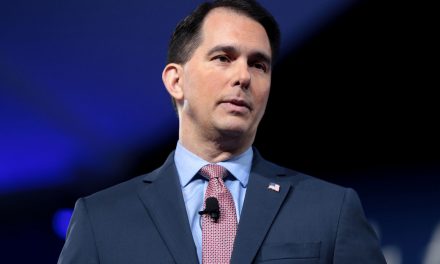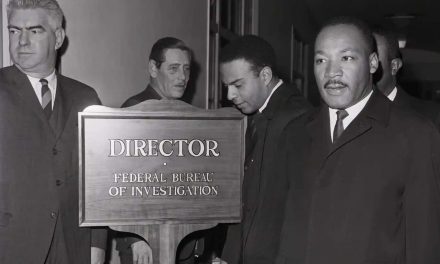
Economic skirmishes among the states are taking a heavy toll on state and local treasuries. Halting the interstate war over jobs can and should be a cause that attracts conservatives as well as liberals.
Inspired by the withdrawal of Amazon.com’s plans for a 2nd headquarters in New York City, and by the potential debacle of Foxconn’s broken promises in Wisconsin, Good Jobs First is proposing a way to end the economic war among the states.
What is this war? It is a battle where states and local governments bid against each other for economic development projects in a way that has served the corporate interest above the interest of citizens.
The bidding wars often result in jobs moving from one region of the country to another, and occasionally even from one county to a neighboring county, yet the corporation is credited with creating “new” jobs. The deals can also involve large public subsidies, like the hundreds of millions of dollars Wisconsin has promised to pay to Foxconn each year.
This corporation-first strategy of economic development has several negative effects:
- By overspending on economic development deals, governments forgo investment in traditional governmental functions that support jobs and local economies. Wisconsin has seen static or lower investments in education, natural resource protection, transportation infrastructure (except some supporting Foxconn), and aids to local governments.
- By focusing economic development on mega-deals, states and local governments forgo investment in smaller, entrepreneurial operations, which have been the source of most jobs.
- It dramatically interferes with the marketplace, causing corporations like Foxconn to initiate projects that aren’t always well thought out and might not be sustainable.
- Finally, the strategy makes a small number of corporate owners very wealthy – widening the large income and racial disparities in our state.
Good Jobs First recommends a multi-pronged approach to attack the problems created by the economic war among the states. Wisconsin would do well to embrace many of these positions:
State pacts against interstate job poaching
In recent years, Wisconsin has tried various means to recruit Illinois and Minnesota businesses to hop over the state line. Otherwise known as “job piracy,” the tactic can serve to cause businesses to move with no net increase in jobs, leave states with no real increase in revenue, and increase commute times (see our previous post on the subject). Good Jobs First recommends that neighboring states/economic regions come to agreements that they won’t actively recruit from each other, and that each will notify the other if approached for a relocation.
Subsidy caps
One of the most alarming aspects of the Foxconn deal is the sheer size of the per-job subsidy to the company, with figures ranging from $219,000 to $274,000 per job in state costs alone, assuming high employment figures. If employment is in the lower ranges of the contract, but capital costs are consistent with the contract, state and local jobs subsidies per job are even higher. Good Jobs First suggests several ways to limit the amount of money paid to a corporation:
- Establish a maximum subsidy per job created (federal and state program limits between $5,000 and $35,000 are common);
- “Means test” the subsidies so that large or multinational corporations don’t qualify for them;
- Preclude local governments from giving up more than a specified amount of their property or sales tax base to tax abatements, TIF districts and/or sales tax exemptions or diversions. Good Jobs First recommends this level be 2 percent. (The ratio for the Foxconn TIF district is 5.2 percent if all property in Racine County is included; this is more than 2.5 times the recommended level.)
- Establish a measure of “aid intensity,” or the ratio of subsidies to private investment, that cannot be breached.
Federal Commitment against Interstate Job Piracy
Federal rules generally prohibit the use of federal dollars to subsidize the relocation of jobs from one state to another, and in some cases within a state, but the rules don’t apply in all cases. They should. Good Jobs First recommends an umbrella law that would apply to all federal incentive programs, and would prohibit favoring one state over another.
Federal Support for Policy Reforms
A fourth mechanism to reduce interstate job piracy is using reinforcement for positive policy reforms. The federal government convinced states to adopt the legal drinking age of 21, thus reducing highway deaths and accidents, by withholding a meaningful percentage of highway funding from states until they raised their drinking age. The same could be done with federal funding for community development to encourage states to sign pledges against piracy or interstate job fraud, or to develop best practices for oversight of the use of federal funds.
Process Reforms
Finally, Good Jobs First suggests that a fertile area for ending the war among the states lies in opening up the processes required before incentives are awarded. Recommended reforms include advance disclosure of applications, independent cost-benefit analyses, systematic public engagement that includes hearings held in proximity to the proposed development site during non-working hours, and full disclosure of negotiations and incentive offers. Imagine the difference if these process requirements had been in place for the Foxconn deal! Instead of the WEDC board seeing the Foxconn contract only a few days before voting on it, the board, and other interested parties, including Wisconsin taxpayers, would have been able to review the contract well in advance.
A Bi-Partisan (Even Nonpartisan) Solution
The proposals offered by Good Jobs First are not partisan – they are good government proposals, leading to a more efficient use of taxpayer dollars. By enacting subsidy caps and process reforms, encouraging uniform practices with respect to the use of federal dollars for job incentives, and increasing transparency, states and local governments would return to getting the best bang for the buck, instead of the “biggest” economic development deal of the year. Jobs would not just be moving from one location to another; instead, new jobs would be created through entrepreneurship, building infrastructure and worker skills development.
Wisconsin can, and should, adopt these proposals to revitalize its economic development practices.
Jon Peacock and Joanne Brown
Originally published on wisconsinbudgetproject.org
Help support the Wisconsin Budget Project with a donation. The organization is engaged in analysis and education on state budget and tax issues, particularly those relating to low-income families. It seeks to broaden the debate on budget and tax policy through public education and by encouraging civic engagement on these issues.














